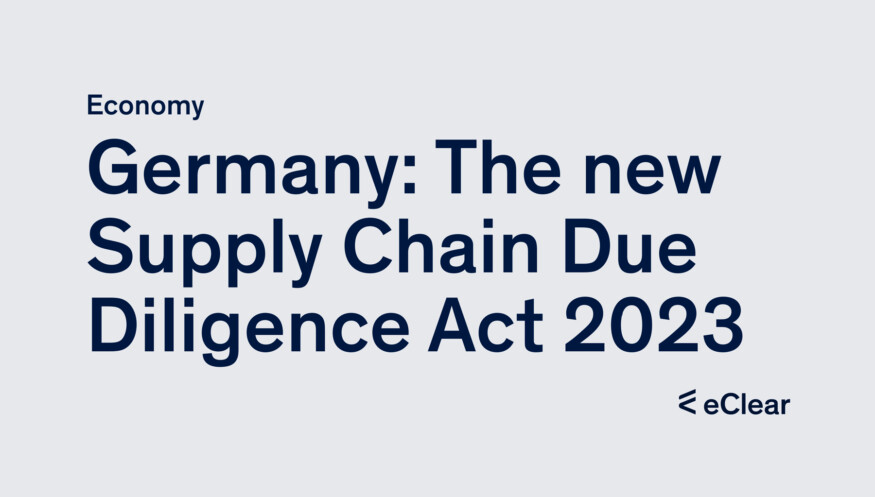What is the purpose of the Supply Chain Due Diligence Act?
In recent decades, the media have been full of horror stories: Child labour, starvation wages, or deadly events in production facilities, for example, the factory fire in a Kik textile factory in Pakistan that killed 250 people. Those affected rarely had any recourse against the companies, as most evaded any responsibility. The situation was particularly precarious in the food and textile industries.
The German Supply Chain Act aims to oblige large companies to ensure compliance with human rights (including the prohibition of child labour, slavery, and discrimination) along their supply chains. As a second pillar, the Supply Chain Due Diligence Act addresses environmental concerns, and companies should take remedial action if a grievance is discovered within the supply chain.
However, the Supply Chain Due Diligence Act has also been widely criticized. For example, it would “not sanction” the destruction of biodiversity and the climate, making production in critical developing countries more difficult. Moreover, the law does not create any new civil liability regulations. Civil liability under German and foreign law continues to apply, which has just come to nothing in the case of Kik.
Who must comply with the Supply Chain Due Diligence Act?
Initially, only companies with 3,000 or more employees (including subsidiaries) in Germany will be required to comply with the Supply Chain Due Diligence Act. According to estimates, this affects approximately 700 companies in this country.
From 2024, the scope of the application will be expanded. Then the Supply Chain Due Diligence Act will also apply to companies with 1,000 or more employees, and it is estimated that this will be around 2,900 companies in Germany.
Suppose companies outside the scope of the Supply Chain Due Diligence Act are part of the supply chain. In that case, they can also be indirectly required to implement due diligence obligations, or the measures provided can extend to them. However, a supplier outside the legal scope of the application will probably not have to reckon with control measures or sanctions by BAFA (The Federal Office for Economic Affairs and Export Control).
What are the obligations of the companies concerned?
Companies are supposed to strive to prevent human rights violations and environmental sins in their supply chain. Companies are now subject to an annual reporting procedure. Furthermore, a policy statement on respect for human rights must be adopted; risk analysis, risk management (including prevention and remediation measures), and a grievance mechanism must be established. In their business operations, companies must take immediate remedial action in the event of a violation, leading to the cessation of the breach.
However, in addition to their business operations, direct suppliers’ business relationships and production methods must also be considered, according to the FAQ of the German Federal Office for Economic Cooperation and Development. Due diligence obligations even extend to indirect suppliers if a company has become aware of specific violations or at least a suspicion arises.
According to the ministry, companies are only required to do what is possible given their size, the nature of their business, or their proximity to the supplier. As part of risk management, a company must only address those human rights and environmental risks it has caused or to which it has causally contributed.
What are the penalties for non-compliance with the Supply Chain Act?
If an affected company violates the Supply Chain Act, it faces penalties of between €100,000 and €800,000. For companies with annual sales of more than 400 million euros, the fine can be up to two per cent of the group’s annual global sales, resulting in a fine of up to eight million euros.
Source: https://www.logistik-watchblog.de







